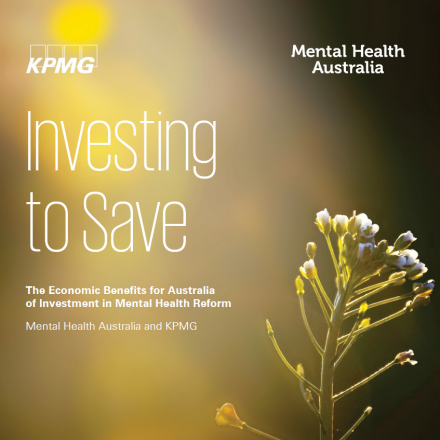The Ripple Project: Better mental health outcomes for young people in out of home care
 Article by Orygen, The National Centre of Excellence in Excellence in Youth Mental Health
Article by Orygen, The National Centre of Excellence in Excellence in Youth Mental Health
Children under the age of 18 years who have experienced or are at risk of abuse or neglect are the subject of Child Protection Orders and are placed in living arrangements known as out of home care (OoHC) [1]. The number of Victorian children removed from home by the State and placed in OoHC has been increasing by 5% per annum since 2002 [2]. Despite experiencing adversity severe enough to require child welfare involvement, some young people also achieve resilient outcomes. However, a considerable proportion also experience social and mental health difficulties. A longitudinal study of young people who had lived in OoHC found that 50% of those who had multiple placements in care had attempted suicide in the period after leaving care [3]. A recent Australian study found that 63% of homeless youth were from OoHC backgrounds [4]. More than half of young people in OoHC have conduct problems, over 35% have hyperactivity and peer problems, and almost 25% of the youth reported symptoms of emotional problems [5]. History of childhood maltreatment is predictive of poor outcomes for adults accessing mental health, employment support and drug and alcohol treatment [6].
Of particular importance is the social and emotional wellbeing of young Aboriginal and Torres Strait Islander people in OoHC. Although Aboriginal and Torres Strait Islander children make up just under 5% of the total population of Australian children, they are 10 times more likely to be placed in OoHC than non-Aboriginal children [7]. Maintaining cultural links is a recommendation in the National Standards for OoHC [8], however without evaluation studies, there is no evidence as to the quality or standard of culturally competent practice.
With such a high proportion of young people in OoHC experiencing difficulties, we propose that carers and residential care workers will be helped in providing good quality and emotionally attuned care by access to advice and support from skilled mental health practitioners. The Ripple Project is a 5-year study (2013‐2017) funded by the National Health and Medical Research Council. It aims to develop an innovative, systematic and affordable approach to improving mental health for young people aged 12‐17 years living in OoHC, including those from Aboriginal and culturally and linguistically diverse communities.
The Ripple intervention will be delivered by mental health and alcohol and drug specialists working in collaboration with OoHC agencies (Anglicare, MacKillop Family Services, Victorian Child Care Agency and Westcare) to deliver evidence-based support and training to carers and OoHC staff. A key component of the study is youth participation. Bounce is a nested study that will pilot a youth peer leadership intervention alongside the Ripple mental health practitioners.
The effectiveness of the intervention will be assessed through interviews with young people, carers and case managers and incorporates process and economic evaluations.
The study plans to demonstrate that a helpful intervention to improve mental health for young people in OoHC (through promoting mental health, and preventing and intervening early as needed for mental ill‐health) can be achieved with a relatively small re‐allocation and redesign of existing resources. Such findings would have significant funding and policy implications for the intersection of the youth mental health and child protection sectors nationally.
Study partners
The following research, community service and government organisations are collaborating in the study:
- Orygen, The National Centre of Excellence in Youth Mental Health
- Orygen Youth Health Clinical Program
- School of Social Work, The University of Melbourne
- Royal Children’s Hospital Melbourne
- Youth Support and Advocacy Service
- Foundation House – The Victorian Foundation for the Survivors of Torture
- Deakin Population Health SRC, Faculty of Health, Deakin University
- MacKillop Family Services
- Anglicare
- Westcare, SalvoCare Eastern Services
- Take Two – Berry Street
- Victorian Aboriginal Child Care Agency
- Mindful
- Centre for Multicultural Youth
- CREATE Foundation
- Victorian Commission for Children and Young People
- Department of Human Services
- Department of Health
[1] Victorian Department of Health, Chief Psychiatrist’s Guideline: Priority Access for Out of Home Care. 2011, Mental Health, Drugs and Regions Division, Department of Health, Victorian Government: Melbourne.
[2] Victorian Government, Victoria’s Vulnerable Children: Our Shared Responsibility, D.o.H. Services, Editor. 2014, Victorian Government: Melbourne.
[3] Cashmore, J., Longitudinal study of wards leaving care [electronic resource] : four to five years on / Judy Cashmore and Marina Paxman. PANDORA electronic collection, ed. M. Paxman, S. New South Wales. Department of Community, and C. University of New South Wales. Social Policy Research. 2007, [N.S.W.]: NSW Dept. of Community Services.
[4] Flatau P., T.M., MacKenzie D., Steen A., The cost of youth homelessness in Australia study: snapshot report 1. 2015, Swinburne Institute for Social Research, Salvation Army Australia, Mission Australia, Anglicare Australia, Centre for Social Impact.
[5] Daining, C. and D. DePanfilis, Resilience of youth in transition from out-of-home care to adulthood. Children and Youth Services Review, 2007. 29: p. 1158-1178.
[6] Moeller-Saxone, K., et al., Promoting resilience in adults with experience of intimate partner violence or child maltreatment: a narrative synthesis of evidence across settings. J Public Health (Oxf), 2015. 37(1): p. 125-37.
[7] Australian Institute of Health and Welfare, Child Protection Australia 2012-13, in Child Welfare Series no. 53. 2014, AIHW: Canberra.
[8] Department of Families, H., Community Services and Indigenous Affairs, An outline of National Standards for Out‐of‐home Care A Priority Project under the National Framework for Protecting Australia’s Children 2009 – 2020, H. Department of Families, Community Services and Indigenous Affairs, Editor. 2011, Commonwealth of Australia: Canberra.
__________
Do you have a comment on this story? Join the conversation on Twitter @AUMentalHealth




